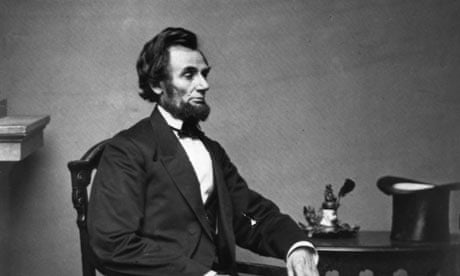The selection of JG Farrell's Troubles for the Lost Booker prize was a good, if belated, moment of recognition for a fine writer, one who has been unjustly neglected for at least a generation. Now, perhaps, Farrell will finally take his proper place as a late 20th-century master.
Forgotten, or neglected prose is an intriguing topic. Musing on Farrell, I found myself making a scratch list of prose classics that are rarely referred to, but which remain evergreen. The titles that follow would be an indispensable part of my desert island library.
First of all, there's a group of three Americans – Abraham Lincoln, Mark Twain and Herman Melville – who are famous for one thing, but who in turn have each produced neglected masterpieces.
1. Roughing It by Mark Twain - a hilarious autobiographical account of his youthful career in the far west
2. The Second Inaugural Address by Abraham Lincoln - 703 words, perhaps six minutes of speech, in which he comes to terms, in the simplest prose, with the deeper meaning of the civil war
3. Bartleby, the Scrivener by Herman Melville - a haunting novella about a strange and marginal New Yorker in mid-19th-century Manhattan
Next, I'd choose the pre-Victorian miniaturist, Thomas Love Peacock, whose comedies of literary life are as fresh and funny and satirical as the day they were written.
4. Headlong Hall by Thomas Love Peacock
Moving into the 20th century, there are two neglected classics of literary espionage that should not be forgotten:
5. Ashenden by William Somerset Maugham. The first ever spy stories, I believe, to have been written by a novelist who had actually been a spy, these were very influential on later espionage writers such as John Le Carré.
6. My Silent War by Kim Philby. Published in 1968, this was overshadowed by the newspaper hysteria surrounding The Third Man. Actually, it's a brilliant and highly entertaining portrait of the British establishment at work and play in the secret world.
Back to the US, I'd want to rescue Toni Morrison's very early novel (in some ways a sketch for the work that followed):
7. The Bluest Eye by Toni Morison
And still in the US, I'd draw attention to the work of the late Laurie Colwin, a brilliant observer of the human comedy, whose career was cut short by her tragic early death.
8. Happy All The Time by Laurie Colwin
Other neglected favourites include the novels of Elizabeth Taylor. From these I'd be inclined to choose:
9. Mrs Palfrey at the Claremont by Elizabeth Taylor
Finally, I nominate a remarkable work of Afro-Caribbean history:
10. The Black Jacobins by CLR James – an unforgettable account of slave revolts in the Caribbean, inspired by the French revolution.
This is, of course, a highly personal list, drawn up at random. On another day, I'd doubtless make other choices. But isn't that the experience of reading? Always a response to mood and circumstance. Maybe it will help to suggest other neglected or half-forgotten classics from the Anglo-American tradition.

Comments (…)
Sign in or create your Guardian account to join the discussion